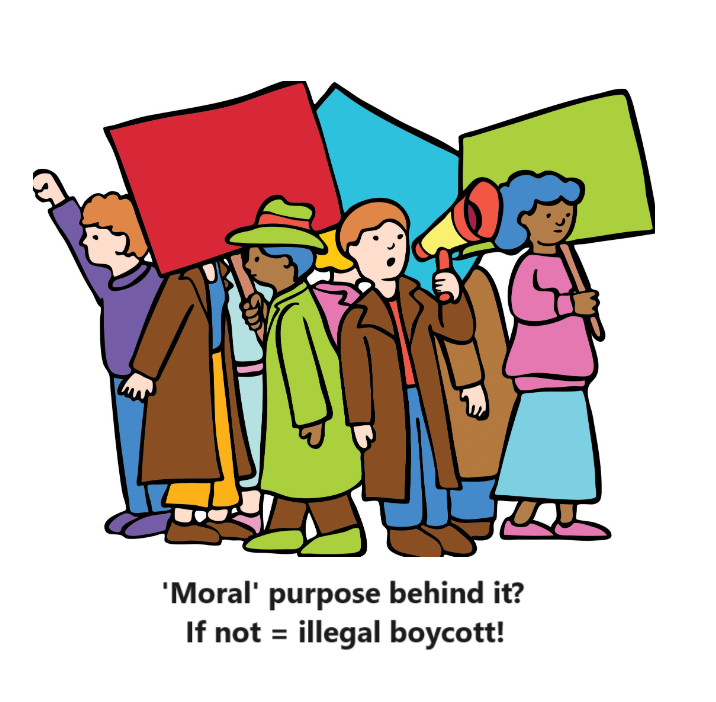Scala Ballroom (Wolverhampton) Ltd v. Ratcliffe [1958] 1WLR 1057
Citation:Scala Ballroom (Wolverhampton) Ltd v. Ratcliffe [1958] 1WLR 1057
Rule of thumb:Is a person/organisation allowed to be boycotted by a group of people in society? An organised boycott of a business is not lawful, albeit it would be if one person were to do so, but where there is an organised group, unless it can be shown that there is a legitimate moral purpose behind doing so.
Judgment:
The facts of this case were that a union of musicians agreed not to perform in the Scala Ballroom for what they believed were moral grievances with management of the Scala Ballroom. Scala sought an injunction to prevent them from doing this, but the Court held that they could not grant this and encourage people to do something they were not morally comfortable with.
Ratio-decidendi:
, ‘If the predominant purpose is the lawful protection or promotion of any lawful interest of the combiners, it is not a tortious conspiracy, even though it causes damage to another person. Assuming for present purposes that there was an agreement between the Defendants and that what was done pursuant to such agreement has resulted or will result in damage to the Plaintiffs, the question now to be considered is whether the agreement was in order to effect an unlawful purpose. It seems to me the evidence that is before us that it appears that the real purpose the real reason of any agreement or combination was to advance the interests of the Defendants and that the proof goes beyond showing that there was merely no purpose of injuring the Plaintiffs. Mr. Le Quesne has forcibly submitted that it should be shown that the purpose of the defendants involved some material advantage to them. If the matter is approached on that basis, then it seems to me that passages in the affidavit of Mr Francis suggest that the Defendants honestly believe that material advantage to their members is involved. But it seems to me that if the Defendants honestly believe that a certain policy is desirable and that it is the wish of their members that that policy should prevail and that there should be no colour bar discrimination, it can be said that the welfare of the members is being advanced, even though it cannot be positively translated into or shown to be reflected in detailed financial terms. It is unnecessary at the present stage to express final and concluded opinions in regard to these matters, but in my judgment, on the material before us, it would not be appropriate that the injunction which is sought should be granted’, Lord Justice Morris

Warning: This is not professional legal advice. This is not professional legal education advice. Please obtain professional guidance before embarking on any legal course of action. This is just an interpretation of a Judgment by persons of legal insight & varying levels of legal specialism, experience & expertise. Please read the Judgment yourself and form your own interpretation of it with professional assistance.

